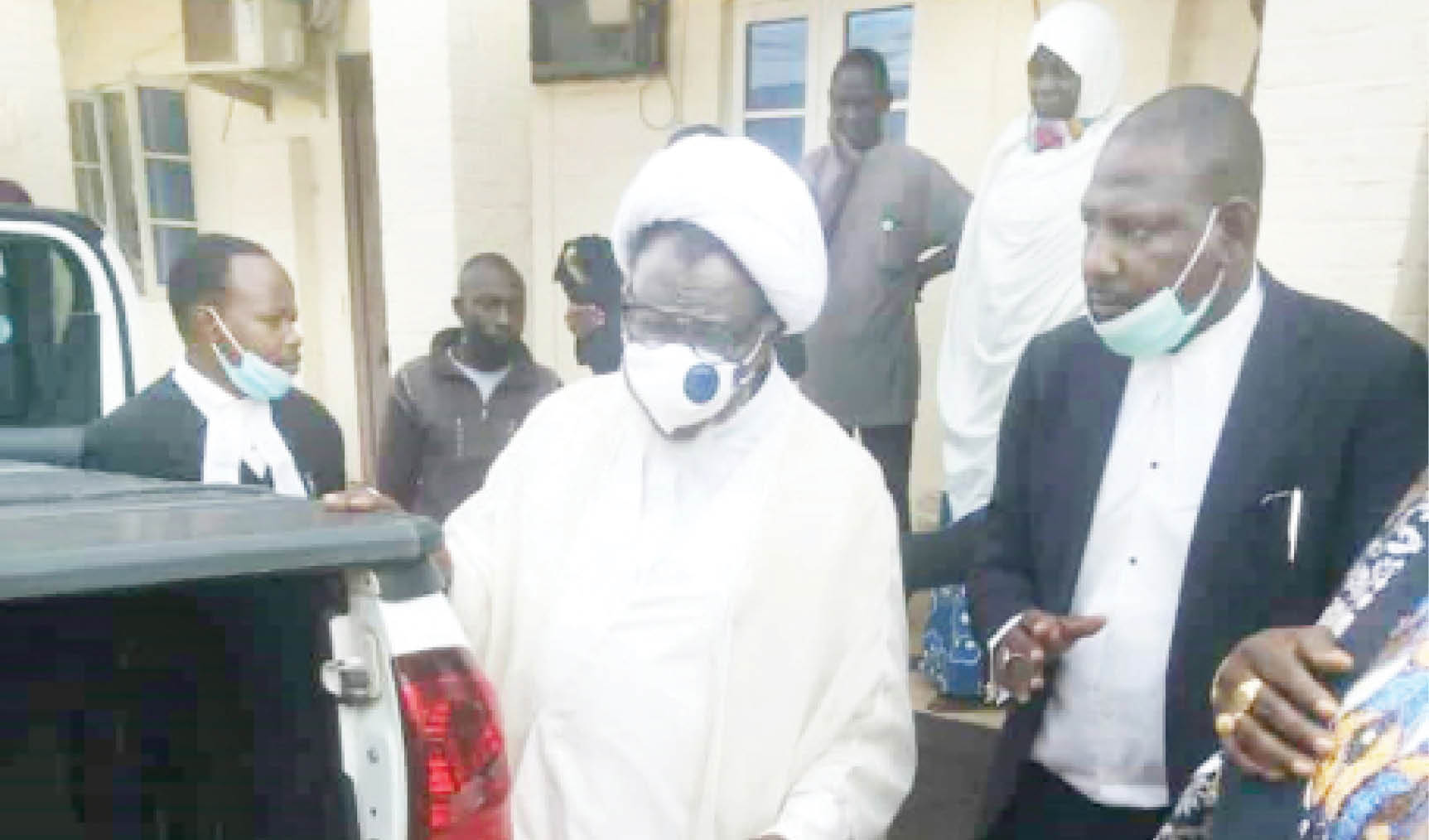Sheikh Zakzaky release a welcome opportunity
By Jens-Petter Kjemprud The 28th July release of Ibrahim El-Zakzaky, the leader of the Islamic Movement in Nigeria (IMN) and his wife Zeenat by the Kaduna High Court opens up a welcome opportunity to resolve a long-standing conflict which has plagued a number of states in Nigeria, and Kaduna State in particular since the clashes […]

Leader of Shiite group IMN, Sheikh Ibrahim El-Zakzaky leaving the court after a Kaduna State High Court discharged and acquitted him and his wife, Zeenat, yesterday
By Jens-Petter Kjemprud
The 28th July release of Ibrahim El-Zakzaky, the leader of the Islamic Movement in Nigeria (IMN) and his wife Zeenat by the Kaduna High Court opens up a welcome opportunity to resolve a long-standing conflict which has plagued a number of states in Nigeria, and Kaduna State in particular since the clashes in 2015 and killing of at least 348 persons.
- PODCAST: Mental Health: The Facts And The Myths And Misconceptions
- How UBA official was killed and buried at his Yobe residence by trusted friend
Defined as a law-and-order issue by the authorities, the continued and prolonged imprisonment of the Shia Sheikh, despite a Federal High Court order to release him and his wife in December 2016, threatened to make the conflict deep-rooted and could develop into a dangerous Sunni-Shia antagonism. The imprisonment and decision by Kaduna State to press new charges was seen by the Shias as a victimisation related to their version of Islam.
The prolonged imprisonment despite the Federal High Court decision in 2016 has drawn criticism from human rights organisations, and from as diverse actors as US and Iran. The granting of bail for El Zakzaky in August 2019 to get medical attention in India was squandered for different reasons and failed to serve as an entry point to a possible negotiated solution to the conflict.
Efforts to find a solution were underway and a dialogue through third parties showed some progress when the medical bail arrangements failed. I personally met sheik Zakzaky and was in regular contact with IMN representatives and relevant government agencies at federal and state level during my tenure as Ambassador to Nigeria from 2016 to 2020, in parts in cooperation with Centre for Humanitarian Dialogue. I believe many of the same issues needs to be handled now after Zakzaky’s release to reconcile the parties. Without such reconciliation I am afraid the conflict will only be on hold until a new crisis emerges.
A number of issues need to be negotiated or agreed between the IMN and the government at federal and state level, at both personal and organisational level. Among those are:
i) The right of Zakzaky and his wife to have medical attention abroad in a country of their choice.
ii) Respect and acceptance from the Kaduna government of the federal and state high courts’ decisions on the Zakzaky case, and no new charges
iii) IMN declaration of respect for the constitution and to work inside the laws of the country
iv) Arrangements to ensure the right of the IMN to practice their religions and exercise their religious processions, including those specific to shiism, inside the constitutional order
v) Establishment of a designated time limited dialogue mechanism at federal and state level to be used to prevent deterioration of relations between IMN and authorities
vi) A review of the recommendations of the Commission of Inquiry and follow up on all recommendations (still relevant at this time)
Ideally the release of Sheik Zakzaky will render the above issues irrelevant or unnecessary to unveil. However, it is always better to prevent a new conflict, than to try to resolve issues if or when they re-emerge as open conflict. I therefore, urge the parties to build on experiences from the dialogue held during the conflict since 2015 and those of the Commission of Inquiry to prevent renewed conflict.
Jens-Petter Kjemprud is a Senior Norwegian diplomat. Also former Director of African Affairs in Ministry of Foreign Affairs in Oslo
